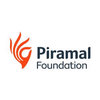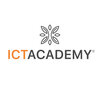Add office photos
Employer?
Claim Account for FREE
Aga Khan Foundation
3.7
based on 71 Reviews
Company Overview
Company Locations
Working at Aga Khan Foundation
Company Summary
Aga Khan Foundation addresses challenges faced by marginalized communities through various programs focused on human development and sustainable growth.
Overall Rating
3.7/5
based on 71 reviews
5% below
industry average
Critically rated for
Promotions
Work Policy
Monday to Saturday
50% employees reported
Strict timing
53% employees reported
Within city
51% employees reported
Day shift
100% employees reported
View detailed work policy
Top Employees Benefits
Job/Soft skill training
3 employees reported
Health insurance
2 employees reported
Professional degree assistance
1 employee reported
Office cab/shuttle
1 employee reported
View all benefits
About Aga Khan Foundation
Founded in1967 (58 yrs old)
India Employee Count51-200
Global Employee Count10k-50k
HeadquartersGeneva, Switzerland
Office Locations
--
Websiteakdn.org
Primary Industry
Other Industries
--
Are you managing Aga Khan Foundation's employer brand? To edit company information,
claim this page for free
The Aga Khan Foundation brings together human, financial and technical resources to address some of the challenges faced by the poorest and most marginalised communities in the world. Special emphasis is placed on investing in human potential, expanding opportunity and improving the overall quality of life, especially for women and girls. It works primarily in six areas: Agriculture and Food Security; Economic Inclusion; Education; Early Childhood Development; Health and Nutrition; and Civil Society.
The Foundation is largely an implementing organisation rather than a grant-making foundation. It receives grant funding from numerous development agencies, private foundations and corporations; raises funds locally in annual events in North America and Western Europe; and receives funding from His Highness the Aga Khan. In addition, an endowment contributes towards its operating costs.
When AKF does make grants or pursue collaborations, they are generally targeted to grassroots organisations testing innovative approaches in the field to specific development problems within AKF’s focus. AKF units are field-based, so queries are best sent directly to country offices.
AKF projects are designed to contribute lessons towards understanding complex issues and identifying potential solutions for adaptation to conditions in different regions. AKF measures success when beneficiaries report improvements in their lives, and when the processes which led to these improvements serve as useful models in other places.
Wherever relevant, approaches are tested primarily in rural settings but also in some urban settings, and within different cultural and geographic environments. Evaluation and dissemination are equally essential. International teams, collaboratively with implementers, conduct reviews at agreed intervals in the project cycle. The conclusions are shared with AKF affiliates, beneficiaries and interested governmental and non-governmental organisations. Valuable lessons are brought to the attention of policymakers to enhance decision making, and to the public to raise awareness of important issues facing developing countries.
AKF has helped to pioneer the Multi-Input Area Development (MIAD) approach, which leverages the capabilities of multiple AKDN agencies (and as is the case for AKF, multiple thematic areas of focus within each agency) in order to deliver social, economic and cultural interventions together in the targeted geographies to accelerate development over time. MIAD allows efforts to reach fruition, creates the basis for sustainable growth in remote regions and builds links with public and private sector partners.
Over time, economic drivers embedded within these efforts generate revenues that communities can utilise for development. AKF’s programmes have historically focussed on rural areas, especially within resource-poor, degraded or remote places. Enabling people in these areas to create the services they need and receive access to the opportunities they want is particularly important for AKF. AKF programmes typically link elements such as rural savings and credit, natural resource management, productive infrastructure development, increased agricultural productivity and human skills development, with a central focus on community-based participation and decision-making.
The ultimate objective is to enable community members to undertake well-informed activities for sustainable and equitable development. The first such effort began with AKRSP in the remote northern areas of Pakistan, an impoverished and rugged region which was isolated and bypassed by developments elsewhere. AKRSP’s challenge was forming sustainable, inclusive processes of development in which diverse communities could participate in creating joint solutions to common problems. In response, AKRSP has successfully tested participatory approaches to planning and implementation of development in rural areas, including the mobilisation of rural savings and the provision of microcredit; the application of cost-effective rural infrastructure development; institution and capacity building; and models for public-private development partnerships.
The model has helped shape activities elsewhere. Central to AKF’s efforts have been inclusive, community-based development approaches, whereby local organisations identify, prioritise and implement projects with AKF’s assistance. Once community organisations have started providing services, AKF expands the programme through establishing village organisations elsewhere. AKF then brings them into federated structures and links them with local governments through collaboration on development issues. It also provides fund-raising advice and contacts through its civil society activities.
Most AKF activities are implemented by effectively managed, local organisations interested in testing new solutions, in learning from experience and in being agents of lasting change. However, if no established group exists, AKF occasionally establishes new organisations to tackle particularly important issues. AKF generally maintains long-term involvement in building social institutions, and thus is able to make commitments to communities as well as carry through changes in attitudes, behaviours and organisational abilities, which require a longer time horizon.
Managing your company's employer brand?
Claim this Company Page for FREE
Aga Khan Foundation Ratings
based on 71 reviews
Overall Rating
3.7/5
How AmbitionBox ratings work?
5
34
4
18
3
6
2
3
1
10
Category Ratings
3.6
Company culture
3.6
Salary
3.6
Work-life balance
3.5
Work satisfaction
3.4
Job security
3.4
Skill development
3.3
Promotions
Aga Khan Foundation is rated 3.7 out of 5 stars on AmbitionBox, based on 71 company reviews.This rating reflects an average employee experience, indicating moderate satisfaction with the company’s work culture, benefits, and career growth opportunities. AmbitionBox gathers authentic employee reviews and ratings, making it a trusted platform for job seekers and employees in India.
Read more
Aga Khan Foundation Reviews
Top mentions in Aga Khan Foundation Reviews
+ 5 more
Compare Aga Khan Foundation with Similar Companies
Change Company | Change Company | Change Company | ||
|---|---|---|---|---|
Overall Rating | 3.7/5 based on 71 reviews | 4.9/5 based on 52 reviews | 4.3/5 based on 480 reviews | 4.1/5 based on 40 reviews |
Highly Rated for | No highly rated category | Skill development Work-life balance Work satisfaction | Skill development Company culture Work satisfaction | Skill development Work-life balance Company culture |
Critically Rated for | Promotions | No critically rated category | No critically rated category | Job security Promotions |
Primary Work Policy | - | - | Work from office 60% employees reported | - |
Rating by Women Employees | 4.1 Good rated by 11 women | 4.7 Excellent rated by 18 women | 4.4 Good rated by 104 women | 4.9 Excellent rated by 9 women |
Rating by Men Employees | 3.6 Good rated by 57 men | 4.9 Excellent rated by 27 men | 4.3 Good rated by 324 men | 3.3 Average rated by 25 men |
Job security | 3.4 Average | 4.6 Excellent | 3.5 Good | 3.0 Average |
View more
Aga Khan Foundation Salaries
Aga Khan Foundation salaries have received with an average score of 3.6 out of 5 by 71 employees.
Program Manager
(7 salaries)
Unlock
₹7 L/yr - ₹12 L/yr
Monitoring Evaluation Officer
(7 salaries)
Unlock
₹4.8 L/yr - ₹8 L/yr
Programme Officer
(6 salaries)
Unlock
₹3 L/yr - ₹10.3 L/yr
Accountant
(5 salaries)
Unlock
₹2.4 L/yr - ₹9 L/yr
State Program Manager
(4 salaries)
Unlock
₹18.7 L/yr - ₹28 L/yr
IT Manager
(4 salaries)
Unlock
₹1 L/yr - ₹13.5 L/yr
Coordinator
(4 salaries)
Unlock
₹6 L/yr - ₹10.8 L/yr
Finance Manager
(4 salaries)
Unlock
₹13.6 L/yr - ₹19 L/yr
Planning Manager
(4 salaries)
Unlock
₹11 L/yr - ₹18 L/yr
Marketing Coordinator
(4 salaries)
Unlock
₹4.2 L/yr - ₹8.4 L/yr
Compare Aga Khan Foundation with

Pratham Education Foundation
4.1

HelpAge India
4.4

SOS Children's Village
3.7

Magic Bus India Foundation
3.9

Teach For India
4.0

The Akshaya Patra Foundation
4.5

Sri Aurobindo Society
3.2

Piramal Foundation
4.1

Deshpande Foundation
3.8

Isha Foundation
4.3

ICT Academy of Tamil Nadu
4.2

Hand In Hand
4.5

WWF-India
3.8

HOPE Foundation
4.1

Pragya
3.2

Yuva Parivartan
4.3

ChildFund India
4.0

Lifeline Foundation
3.9

Child help Foundation
3.8

Society for Nutrition Education & Health Action
4.0
Edit your company information by claiming this page
Contribute & help others!
You can choose to be anonymous
Companies Similar to Aga Khan Foundation

Actionaid
Non-Profit
4.1
• 40 reviews

Pratham Education Foundation
Education & Training
4.1
• 357 reviews

HelpAge India
Non-Profit
4.4
• 122 reviews

SOS Children's Village
Non-Profit
3.7
• 169 reviews

Magic Bus India Foundation
Non-Profit
3.9
• 457 reviews

Teach For India
Non-Profit, Education & Training
4.0
• 131 reviews

The Akshaya Patra Foundation
Non-Profit
4.5
• 610 reviews

Sri Aurobindo Society
Non-Profit
3.2
• 274 reviews

Piramal Foundation
Non-Profit
4.1
• 214 reviews

Deshpande Foundation
Automobile, Non-Profit, Retail
3.8
• 134 reviews
Aga Khan Foundation FAQs
When was Aga Khan Foundation founded?
Aga Khan Foundation was founded in 1967. The company has been operating for 58 years primarily in the Non-Profit sector.
Where is the Aga Khan Foundation headquarters located?
Aga Khan Foundation is headquartered in Geneva.
How many employees does Aga Khan Foundation have in India?
Aga Khan Foundation currently has approximately 70+ employees in India.
Does Aga Khan Foundation have good work-life balance?
Aga Khan Foundation has a Work-Life Balance Rating of 3.6 out of 5 based on 70+ employee reviews on AmbitionBox. 73% employees rated Aga Khan Foundation 4 or above, while 27% employees rated it 3 or below on work-life balance. This indicates that the majority of employees feel a generally balanced work-life experience, with some opportunities for improvement based on the feedback. We encourage you to read Aga Khan Foundation work-life balance reviews for more details
Is Aga Khan Foundation good for career growth?
Career growth at Aga Khan Foundation is rated as moderate, with a promotions and appraisal rating of 3.3. 27% employees rated Aga Khan Foundation 3 or below, while 73% employees rated it 4 or above on promotions/appraisal. This rating suggests that while some employees view growth opportunities favorably, there is scope for improvement based on employee feedback. We recommend reading Aga Khan Foundation reviews for more detailed insights.
What are the cons of working in Aga Khan Foundation?
Working at Aga Khan Foundation does have some drawbacks that potential employees should consider. The company is poorly rated for promotions / appraisal, based on 70+ employee reviews on AmbitionBox.
Stay ahead in your career. Get AmbitionBox app

Helping over 1 Crore job seekers every month in choosing their right fit company
75 Lakh+
Reviews
5 Lakh+
Interviews
4 Crore+
Salaries
1 Cr+
Users/Month
Contribute to help millions
Get AmbitionBox app

